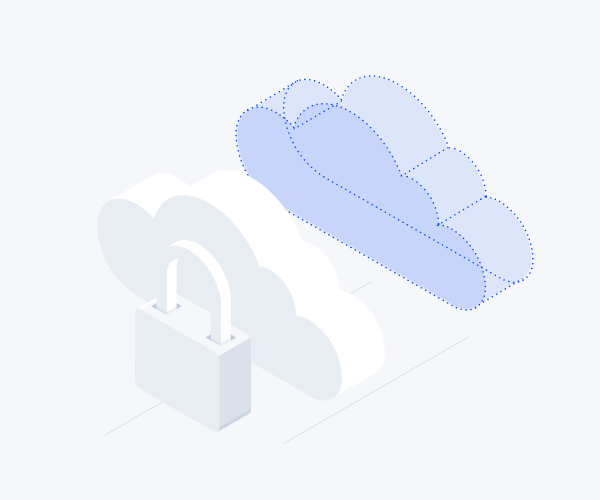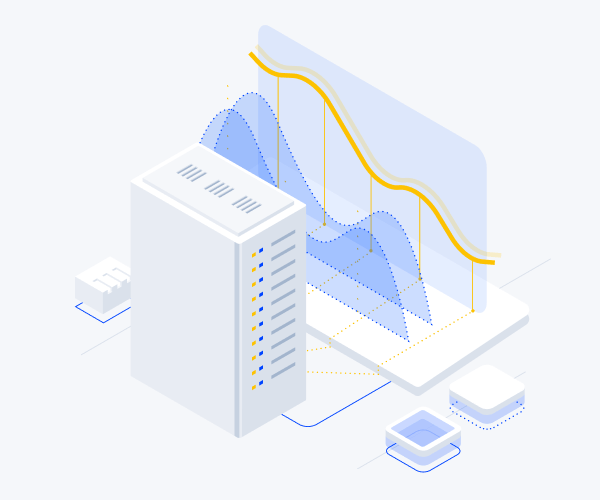Public cloud Vs Private cloud: Which one is Perfect for my Business

Cloud computing in a nutshell:
Over the years, cloud computing has gained popularity in the IT and business community. Now, more than ever before, businesses understand that cloud computing is the future and would like to integrate it into their operations.
For those venturing into the cloud computing universe, the private cloud vs public cloud conversation has been going on for years now.
Before deciding which cloud works for your business, or which side of the debate to be on, it’s important you understand the difference between the private cloud and the public cloud, along with the basics of cloud computing.
What is Cloud computing? In simple terms, the cloud is a collection of servers hosting databases and software, which are accessible over the internet. These servers are located in data centers all over the globe. Through cloud computing, businesses are able to eliminate the need to perform tasks such as server maintenance and administration.
Now that you have a basic understanding of cloud computing, let’s discuss the two major cloud deployment models (Private cloud and Public cloud). There are other types of clouds (hybrid cloud and multicloud) but we are going to focus on the two.
What is a Private Cloud?
A private cloud, also referred to as enterprise cloud or internal cloud, is a deployment model where resources are exclusively available to one dedicated organization. With this type of model, the infrastructure is hosted on the organization’s intranet or the cloud service providers’ data centers.
This gives the underlying organizations freedom to customize components such as networks, hardware, and storage as they see fit.
It is popular in organizations that handle sensitive data, and prefer the adaptability and scalability that comes along with it.
Advantages of Private Cloud
One of the main advantages that the private cloud offers is its amazing data security and compliance capabilities. Here are some other vital advantages that are offered by the private cloud:
- Private clouds give businesses the freedom to control their data and customize their core architecture as they want. It also makes monitoring easy and effective.
- Customization and reliability: The private cloud gives businesses the ability to customize the components of their infrastructure in a way that increases their performance. Private clouds are also reliable.
- Private cloud users tend to enjoy more features such as monitoring and automation tools compared to public cloud users.
- Performance: Public clouds suit companies with powerful computing needs since they offer space for upgrading the infrastructure.
Disadvantages of Private Cloud
Despite having a plethora of advantages, the private cloud has its own dark side. Here are some disadvantages of private clouds:
- Private clouds are expensive compared to public clouds. Components such as software licenses, hardware, network infrastructure, and labor costs contribute to the increased costs. This element limits public clouds to well-established companies.
- Maintaining and deploying private clouds is no doubt a daunting task. The business needs to hire a qualified team to maintain the infrastructure which increases the cost of operation. However, you can overcome this challenge by hiring a managed cloud service provider to do the heavy lifting.
- Limited remote access-due to its security-first approach, remotes access is limited, which tends to reduce performance in some cases.
What is Public cloud?
Unlike the private cloud where resources are used by one organization, in the public cloud model, resources are shared between several unrelated tenants. In this model, cloud computing services are available for anyone over the internet and are provided by third-party vendors. This model gives businesses and developers a chance to get access to powerful computing power, storage, infrastructure, and software at pocket-friendly rates.
Advantages of Public cloud
There are many advantages that come with using the public cloud deployment model, but the most popular one is its cost-friendliness.
- Budget-friendly (Cuts maintenance and hardware costs), which makes it popular among startups and SME.
- Most providers offer disaster recovery functionality, which can be expensive to perform traditionally.
- Offers high levels of scalability and reliability — Public cloud services provide you with the ability to scale up anytime you want.
- Public clouds are user-friendly when it comes to setting up and managing.
Disadvantages of public cloud
Here are some of the disadvantages and challenges you may face when using the public cloud:
Data compliance and security issues — This is the main concern for businesses that want to integrate cloud computing into their workflow. With this model, businesses have to walk the extra mile with their security strategies.
It can be expensive when not properly managed — Most public cloud vendors use the pay-as-you-go model, which may sound convenient, but needs extra caution.
Limited customization capabilities and poor technical support: The multi-tenancy nature of the public cloud hinders its users from customizing some components. Most public cloud providers also offer poor or no technical support at all, which can limit performance.
Elevated risk of vendor-lock-in, which may be disastrous in case of future migration.
Private cloud Vs Public cloud: The difference
Now that you have a good understanding of the ins and outs of both deployment models, let’s spot the major differences between private cloud and public cloud.
| Private Cloud | Public Cloud |
| Both on-premise and off-premise infrastructure | Off-premise infrastructure |
| Require capital investment and maintenance costs to get running | No initial capital required to run |
| Single-tenant | Multi-tenant |
| Highly-customizable/td> | Limited customization capabilities |
| Guaranteed high-performance | Reduced performance due to its multi-tenant nature |
| Enhanced data security and compliance capabilities | Basic compliance and data security |
| Possible underutilization of resources | Scalability on demand |
Which one should I choose?
For the pro-cloud enthusiasts, the pay-as-you-go model, quick resources access, and flexibility are enough to win the battle between the two. The pro-public on the other hand drive clients and the cloud community to believe that security, control, physical data proximity, and elevated levels of management visibility make this the best model for your business.
But, shouldn’t the more reasonable debate be about which is perfect for you, as opposed to what is the best?
There is no blueprint to help you choose between the two, but companies with powerful computing needs are better off using the private cloud. You wouldn’t imagine a hospital, government organization, or educational facility using the public cloud, would you?
Exactly! The nature of your business and its size are some key elements to choosing between the two.
For startups and small businesses with a limited budget, the public cloud may work perfectly for you.
A combination of both maybe your best option, if you believe you can handle the responsibilities. Of late, there has been increased adoption of the hybrid cloud, which lets your business adopt the good sides of both the public and private cloud.
Ending the Private cloud Vs Public Cloud Debate
The private cloud vs public cloud debate should not exist in the cloud computing ecosystem, mainly because it has no relevance. Both models have advantages and disadvantages and work differently in different contexts.
Businesses should choose between the two models based on relevant factors such as cost, scalability, business needs, performance, and flexibility.
I hope this article helps you decide which model works for you.
Are you having trouble deciding which deployment model works for you? Reach out to our experienced team and get a consultation on which model will work perfectly for your business.





